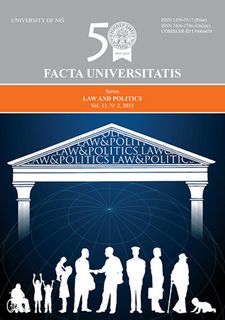THE CONCEPT AND TYPES OF MORTGAGE IN SERBIAN LEGISLATION
THE CONCEPT AND TYPES OF MORTGAGE IN SERBIAN LEGISLATION
Keywords: non-possessory pledge; reform; mortgage; registered pledge (chattel mortgage)
Mortgage is a real security right on another’s immovable property which empowers the mortgage creditor to initiate a sale of mortgaged property (foreclosure) in order to settle the due debt claim from the proceeeds of sale, i.e. out of the value obtained by sale of the mortgaged property. Although mortgage was originally created on immovable property (chattel real), in the contemporary legislation it may also be established on movable assets, primarily owing to the development of the so-called mortgage on movable assets (chattel mortgage) as a form of non-possessory pledge. Whereas the property owner (mortgagee) retains his right to possess, use and dispose of the mortgaged property, the mortgage creditor’s right is secured by having his right entered in the public chattels register. In Serbian legislation, this “formula” is applied to the conventional mortgage of immovables (chattels real) and the registered pledge on movable assets (chattels personal) which may be constituted on ships and aircraft; however, in the last 10 years, it has also been applied to registered non-possessory pledge on movable assets (chattels mortgage). After introducing this new form of registered pledge in 2005, the Serbian legislator reformed the legal framework regulating the mortgage on immovable property. In this article, the author provides a brief overview of the most significant forms of non-possessory securities in Serbian legislation and their distinctive features. Focusing on the institutes on mortgage and registered pledge, the author provides a critical analysis of some legal solutions envisaged in the Serbian legislation as opposed to related comparative law solutions, particularly those envisaged in the German and Austrian legislation.
More...
